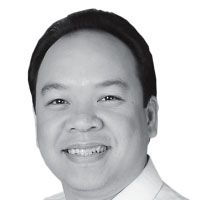Political franchise

Just finishing the nation’s most significant electoral exercise has not dampened the ardor for the voting franchise. Hence, the collective push for finally holding the long-delayed Barangay and Sangguniang Kabataan (Bgy/SK) elections. Incumbents, of course, are seeking postponement in order to further extend their tenure.
My late father Ernesto M. Maceda was a firm proponent of local autonomy. He matriculated on this in promoting rural reconstruction, leading the Presidential Arm on Community Development (precursor of the DILG) in the Cabinet of president Ferdinand E. Marcos. In his maiden senatorial run, 1971, he was often referenced as “the man from the barrios.” In his second senatorial campaign in 1987, his tag line was “Kay Maceda, Barangay ang Una.” In the drafting of the 1991 Local Government Code, principal author senator Nene Pimentel routinely acknowledged senator Maceda’s contributions and honored him as lead person on the chapters on the barangay (formerly the barrio).
Manong Ernie became Senate president but he started at step one. During his time, the entry level elective position was municipal/city council member. He ran and won as city councilor of Manila in 1959. Why not barrio captain first? Because it was only in the following year, with the approval of the Barrio Charter, that barrio officials became elective. Until then, only heads of families could qualify as voters or “electors” for barrio council elections.
Tik Talk. Talk about cursus honorum – going up the succession of offices. Several incumbent members of Congress started their careers as barangay officials.
Talk about making the barrio officials elective. When first discussed by senators Tomas Cabili et. al. in the 1950s, the urgency of providing governance infrastructure at the grassroots was conceded. The experience of self-help would be the ideal way to heighten a culture of democracy.
Talk about extension. At the start of every term, we confront the question of postponement. From the beginning, the three-year Bgy/SK term has been synchronized to take place during national election years.
The case at bar. In the House of Representatives, the adoption of pending postponement proposals is imminent. At the Senate, however, minority leader and former Senate president Koko Pimentel shares that there is “no clear consensus.”
Hence, the public debate on the topic. Pre-eminent election lawyer Romy Macalintal reminds us of his periodic challenge to the constitutionality of such postponements. The SK, being statutory and not a constitutional institution, can be elected whenever Congress says. But as to the barangay elections, the same having constitutional implications, it is an “unresolved” issue.
CNN resident law expert and also top election law practitioner Alberto Agra points out that postponements are seen as anti-democratic, with congressional discretion supplanting direct popular will; also, holding-over amounts to an impermissible legislative appointment.
Comelec. This discussion once again highlights the importance of the role of the Commission on Elections (Comelec) as well as the delicate and intricate questions with which it is buffeted by the whirlwinds of politics. Its main mandate is to enforce and administer election laws – to just do as Congress legislates. As constitutional regulator of the political franchise, they may even postpone elections, disqualify candidates, deputize virtually the entire infrastructure of government.
It wields all these awesome powers but none of these it can pull off credibly without first establishing the bona fides of its independence. Comelec Chair George Erwin Garcia, himself a high-profile election law practitioner, has stressed the independence and impartiality required of the Comelec. In his brief tenure as commissioner, he proved it by inhibiting from en banc resolutions on former client President Marcos Jr.’s disqualification cases. In other words, without independence, it simply won’t work.
The gamut. Independence, inhibiting... these are terms related to the exercise of quasi-judicial power. But there is so much more on the Comelec’s plate.
The Constitutional Commissions are the foremost examples of administrative agencies that are “3 in 1.” They combine executive, quasi-legislative and quasi-judicial power, in derogation of the bedrock constitutional design of diffusion. The Comelec most affects the general public, dealing as it does with the right of suffrage. The Commission on Audit (COA) works with public agencies; the Civil Service Commission (CSC) with public employees.
The quasi-legislative power is in the issuance of implementing rules and regulations. The General Instructions, which is the operations manual of every election, will be deliberated upon and approved by the Commission for the upcoming Bgy/SK elections.
And then, there are the administrative responsibilities: automation, investigations, year-round immersion in election offense prosecutions, voters education, registration, etc.
Institution building. Chairman Garcia spoke of an Election Academy as one of his “structural reforms.” This idea is long overdue. There is no dedicated course in college on elections. In the regular political science or public administration curriculum, there is nothing. In law schools, Election Law is a one-unit subject. Hence, for Comelec employees and even officials, it’s really matriculating on the job.
As for literal institution building, the Comelec is the only Commission to not have its own “house.” CSC and COA both have their place in the National Government Center (NGC). There was previously the old Comelec edifice in Intramuros known as the Intendencia building. But that burned down in 1979.
The original plan was to also house the Comelec in the NGC. In LOI No. 812, s. 1979, President Marcos I ordered and instructed, among others, that the Intendencia Building was to be restored and “To provide for the requirements of the Commission on Elections, the Minister of Public Works, Transportation and Communications is hereby directed to begin construction work of the permanent building of the Comelec at the National Government Center at Quezon City...”
It would be ideal if not only the general headquarters but also the Election Offices in the different regions, provinces, cities have their own buildings. The Commissions can actually share in the cost of common offices. At least, consider having hosts not as political as the LGUs as the same also impacts on independence and impartiality.
- Latest
- Trending
























